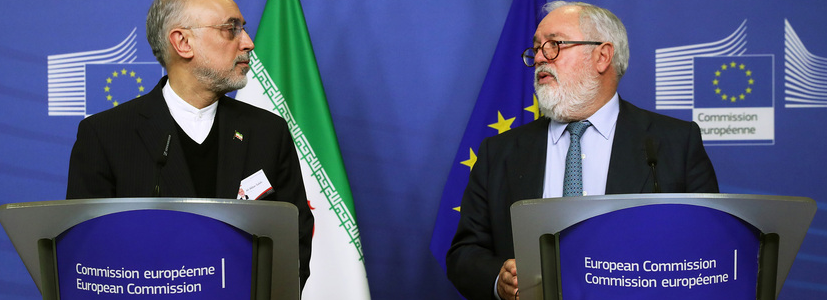
The Wall Street Journal reported Nov. 26 that Paris and Berlin are about to create a payments channel to maintain trade with Tehran in defiance of US sanctions. The news has been largely received in Iran as a signal that the Joint Comprehensive Plan of Action (JCPOA) will yet be salvaged. The channel, known as a Special Purpose Vehicle, has been under discussion for months by Iranian and European negotiators.
Printing a picture of French President Emmanuel Macron and German Chancellor Angela Merkel hand-in-hand on its front page, Reformist newspaper Aftab praised their two governments’ “step forward” in bypassing US sanctions on Iran. “The French and Germans are rolling up their sleeves to implement the mechanism,” read another editorial in Iran, a paper echoing the official agenda of President Hassan Rouhani’s government. “Once implemented, the mechanism will prevent Iranian financial isolation,” the article stated.
Since the US pullout from the JCPOA on May 8, Iranians have been looking to Europeans to rescue the pact with practical steps beyond political support. In an interview a day after the report, Ali Akbar Salehi, the head of Iran’s Atomic Energy Organization, expressed Tehran’s frustration with delays in European action and made it clear to Europe that failure was not an option. He said he would convey to the EU Foreign Policy Chief Federica Mogherini ahead of a meeting between the two in Brussels that Iranians’ patience is running out. Salehi also renewed a warning that Tehran would resume its 20% level uranium enrichment program if it finds the deal is no longer working.

